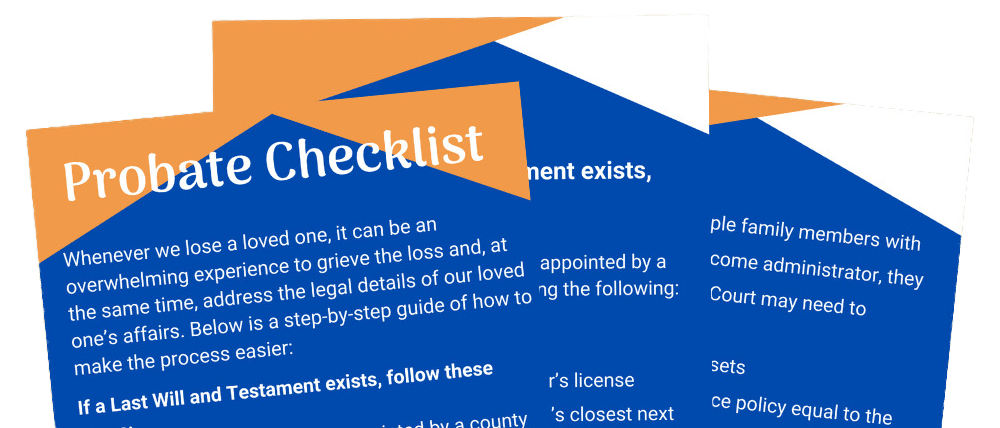After the passing of a loved one, his or her Will may need to go through the Probate process. This process is where the Court authenticates the document in order to transfer assets to those named in the individual’s Will.
Many people are under the misconception that probating a Will includes the entire Estate Administration process. But in reality, probating a Will simply means to validate the Will and designate an executor for the estate through the Surrogate Court.
The executor of an estate is responsible for taking control of the decedent’s accounts and assets and ultimately, properly distributing said assets to those named in the Will (beneficiaries). In addition, the executor is responsible for the financial obligations of the decedent, such as paying off the decedent’s debts and maybe in some instances, selling the decedent’s property. In that instance, any funds acquired from the selling of property become part of the decedent’s estate and can be passed on to the named beneficiaries.
The Probate Process Explained
To start the Probate process, the executor must file a petition with the Surrogate’s Court in the county where the decedent lived.
The Probate process can be a fairly simple and quick process. Nevertheless, the actual Estate Administration process can take a few months to a year, or even longer depending on the size and complexity of the estate.
The Probate process can be delayed if a Will Contest occurs. Will Contests take place when there is a dispute over some aspect of the Will and the Will is essentially blocked from being probated.
Similarly, if an individual were to die without a Will, his or her estate administration process could take much longer since the Courts will be required to designate an Administrator for the Estate. The Estate Administrator, like an executor, is responsible for handling all administration duties as discussed above.
What Assets Pass Outside of the Will (a.k.a non-probate assets)?
Assets owned by the decedent jointly with another and assets that designate a named beneficiary such as life insurance proceeds, payable on death accounts, IRA’s and 401K’s pass to the named beneficiary outside of the Will. However, if the decedent has these types of accounts and no beneficiary is named or the named beneficiary predeceases, these assets would then pass to the estate making them estate assets subject to the Probate process.
If you are in the process of Probating a Will or need guidance on Will Contests or Estate Administration, contact our office at 856.782.8450 or [email protected].



